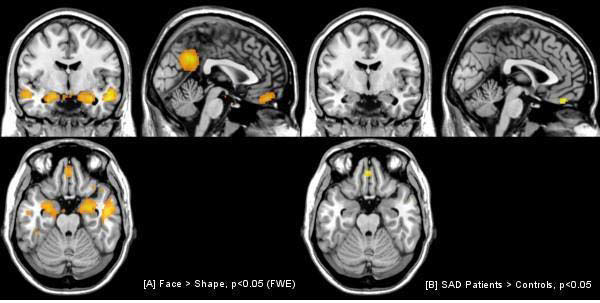Most cited
This page lists all time most cited articles for this title. Please use the publication date filters on the left if you would like to restrict this list to recently published content, for example to articles published in the last three years. The number of times each article was cited is displayed to the right of its title and can be clicked to access a list of all titles this article has been cited by.
- Cited by 1
Fathers' Personality Dispositions and Conduct-disordered Children's Perception of Their Fathers
-
- Published online by Cambridge University Press:
- 15 April 2020, p. 1
-
- Article
-
- You have access
- Export citation
- Cited by 1
Do autism and ocd have shared genetic vulnerability?
-
- Published online by Cambridge University Press:
- 16 April 2020, pp. S32-S33
-
- Article
-
- You have access
- Export citation
- Cited by 1
The Effect of Neonatal Massage On Couple Perinatal Depression Symptoms
-
- Published online by Cambridge University Press:
- 15 April 2020, p. 1
-
- Article
-
- You have access
- Export citation
- Cited by 1
Long Term Use of Antipsychotics in Schizophrenia and Relation to Cortisol Level
-
- Published online by Cambridge University Press:
- 15 April 2020, p. 1
-
- Article
-
- You have access
- Export citation
- Cited by 1
The Diagnostic Accuracy of Brief and Ultra-brief Versions of the Geriatric Depression Scale: a Meta-analysis
-
- Published online by Cambridge University Press:
- 15 April 2020, p. 1
-
- Article
-
- You have access
- Export citation
- Cited by 1
P-1175 - the Effectiveness of Imagery Rescripting and Reprocessing Therapy on Reduction of Subjective Units of Distress and Recurrent Images on war Disabled With Ptsd
-
- Published online by Cambridge University Press:
- 15 April 2020, p. 1
-
- Article
-
- You have access
- Export citation
- Cited by 1
Clinical and Environmental Features Associated with Tunisian Patients Who Committed a Suicide Attempt
-
- Published online by Cambridge University Press:
- 15 April 2020, p. 1
-
- Article
-
- You have access
- Export citation
- Cited by 1
Pathology of the Central Nervous System Hiv Infection
-
- Published online by Cambridge University Press:
- 16 April 2020, p. 191s
-
- Article
-
- You have access
- Export citation
- Cited by 1
P-790 - Neural Correlates of Frustration in Depressed Patients and Healthy Controls: an Fmri Study
-
- Published online by Cambridge University Press:
- 15 April 2020, p. 1
-
- Article
-
- You have access
- Export citation
- Cited by 1
P-638 - Review the Effects of Information Technology Health e-newsletter to Psychiatric Nurses at Shiraz Psychiatry Hospital, Using Mobile (sms)
-
- Published online by Cambridge University Press:
- 15 April 2020, p. 1
-
- Article
-
- You have access
- Export citation
- Cited by 1
Additive Interaction Between Cannabis Use and Social Adversity On Predicting Psychosis: Beyond the Main Effects
-
- Published online by Cambridge University Press:
- 15 April 2020, p. 1
-
- Article
-
- You have access
- Export citation
- Cited by 1
2929 – The Prevalence of Alcohol Drinking Behavior in Public Universities: A Case of Ethiopia
-
- Published online by Cambridge University Press:
- 15 April 2020, 28-E1764
-
- Article
-
- You have access
- Export citation
- Cited by 1
Should we despecialize the training? Postgraduate training in psychiatry in the time of the COVID-19 outbreak in poland: Challenges & solutions
-
- Published online by Cambridge University Press:
- 13 August 2021, p. S833
-
- Article
-
- You have access
- Open access
- Export citation
- Cited by 1
Impulsivity
-
- Published online by Cambridge University Press:
- 16 April 2020, p. 224s
-
- Article
-
- You have access
- Export citation
- Cited by 1
Are Second-generation Antipsychotic Drugs Effective in Treating Anorexia Nervosa?
-
- Published online by Cambridge University Press:
- 15 April 2020, p. 1
-
- Article
-
- You have access
- Export citation
- Cited by 1
3033 – An Overview of the European Research Networks in Psychiatryan Overview of the European Research Networks in Psychiatry
-
- Published online by Cambridge University Press:
- 15 April 2020, 28-E1815
-
- Article
-
- You have access
- Export citation
- Cited by 1
Potential clinical applications of BP 897, a partial dopamine D3 agonist
-
- Published online by Cambridge University Press:
- 16 April 2020, pp. 68s-69s
-
- Article
-
- You have access
- Export citation
- Cited by 1
The Efficacy of Lurasidone on PANSS Subscales in Adolescent Patients with Schizophrenia: Results from a 6-week, Double-blind, Placebo-controlled, Multicenter Study
-
- Published online by Cambridge University Press:
- 23 March 2020, pp. S90-S91
-
- Article
-
- You have access
- Export citation
- Cited by 1
Orbitofrontal hyperactivity in social anxiety disorder patients: An fmri study
-
- Published online by Cambridge University Press:
- 16 April 2020, p. 179
-
- Article
-
- You have access
- Export citation
- Cited by 1
A systematic review and meta-analysis of the mortality rate of electroconvulsive therapy (ECT)
-
- Published online by Cambridge University Press:
- 23 March 2020, p. S375
-
- Article
-
- You have access
- Export citation


